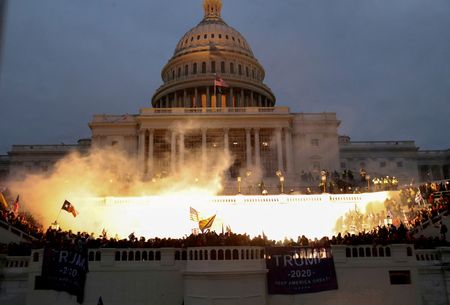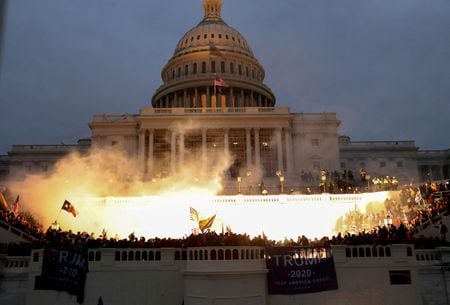
WASHINGTON, D.C. – If former U.S. President Trump wins the November election and becomes the 47th President of the United States, one U.S. Congressman says a plan is in place to stop him from taking office.
U.S. Representative Jamie Raskin has sparked controversy by stating that Congress has the authority to prevent Donald Trump from assuming office, even if he wins the election, citing Section 3 of the 14th Amendment.
Raskin said the Democrats could force a January 6th insurrection, which he said would possibly lead to a civil war.
This constitutional clause, which addresses issues related to insurrection and rebellion, is at the center of Raskin’s argument. He suggests that it clearly disqualifies Trump, although the Supreme Court has yet to definitively interpret this aspect in relation to Trump’s eligibility.
“What can be put into the Constitution can slip away from you very quickly. The greatest example going on right now before our very eyes is Section 3 of the 14th Amendment, which they’re just disappearing with a magic wand as if it doesn’t exist, even though it could not be clearer what it’s stating,” Raskin said. “And so they want to kick it to Congress. So it’s going to be up to us on January sixth, 2025, to tell the rampaging Trump mobs that he’s disqualified. And then we need bodyguards for everybody in civil war conditions, all because the nine justices, not all of them, but these justices who have not many cases to look at every year, not that much work to do, a huge staff, great protection, simply do not want to do their job and interpret what the Great 14th Amendment means.”
Raskin warned of potential civil unrest, emphasizing the need for heightened security measures for Congress members should such a scenario unfold on January 6, 2025, when Congress is expected to certify the presidential election results. His comments underline the tension between judicial interpretation and legislative action regarding constitutional provisions.
The congressman’s remarks have intensified the debate over the constitutional checks on presidential power and electoral integrity, calling for a detailed examination and interpretation of the 14th Amendment by the judiciary. This discussion is likely to prompt responses from both sides of the aisle as the political implications of such a constitutional interpretation unfold.

